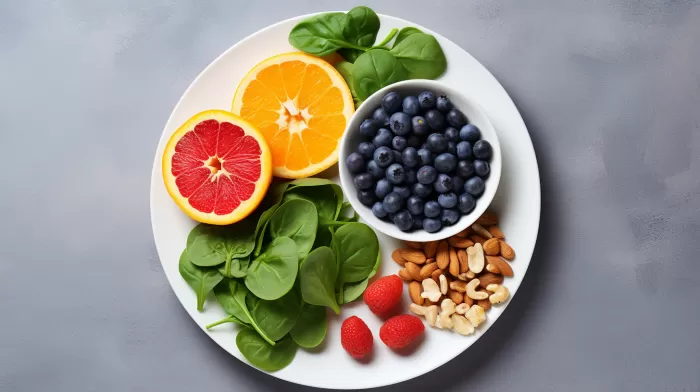While celebrating love this February, it’s also crucial to remember the importance of heart health during National Heart Month. The winter season can be challenging on your heart, so making small lifestyle changes can greatly improve the way we care for this essential organ.
Inflammation and Heart Health
Many people don’t realize that the foods they eat can have a significant impact on their health. Consuming anti-inflammatory foods and avoiding inflammatory ones is the best way to care for your heart. Inflammation-fueling sugar and trans fats, commonly found in processed, fried, and over-grilled foods, should be eradicated from your diet. These food types contain Advanced Glycation End-products (AGEs) which promote early aging and disease.
A study conducted at Mount Sinai School of Medicine outlined that eating poached, stewed, or steamed meals—cooking processes that produce fewer AGEs—resulted in dramatic reductions in inflammatory markers, with a direct correlation to improved cardiovascular health. Another crucial aspect is to ensure that meals are comprised of high-quality protein and inflammation-busting omega-3 fatty acids, which are common in flax, chia, and walnuts. Sprouted whole grains, green leafy vegetables, and a variety of fruits can also provide anti-inflammatory compounds.
Eating more colorfully can increase the phytonutrient intakes in the system. This is achieved by consuming tomatoes, squash, yams, peppers, blueberries, and strawberries. Cruciferous vegetables like broccoli, kale, and cauliflower are also excellent food sources. The utilization of DIM (3,3’- diindolylmethane), a phytonutrient found in cruciferous vegetables, has been known to regulate inflammation, balance hormones, promote detoxification, and combat cancer.
Activity and Heart Health
Another lifestyle change involves staying active, even with short exercises such as a brisk 30-minute walk each day. Regular exercise has numerous benefits, including conditioning the cardiovascular system, burning calories, and reducing levels of cortisol, a hormone associated with stress.
Detoxify Your Inflammation
Supplementing wisely is another way to help your heart. Modified citrus pectin (MCP) is gaining the attention of researchers around the globe. While citrus pectin offers known health benefits, it doesn’t metabolize well. MCP solves this problem by breaking up large molecules and allowing them to absorb into the bloodstream. In the body, MCP binds to a protein called galectin-3, a well-known factor in heart disease. This protein has links to inflammation and scarring in blood vessels and major organs. MCP also helps remove heavy metals from the body, a potential source of chronic inflammation and risk to general health.
Probiotics: Friends for your Heart
Beneficial bacteria, or probiotics, are also being studied for their potential in controlling cardiovascular disease. Probiotics support many areas of health by reducing inflammation, supporting immunity, and performing various detoxification functions. Probiotics can be found in cultured foods such as sauerkraut, miso, yogurt, and kefir, or through high-quality probiotic supplements.
The Winter Paradox
Heart attacks are more prevalent during December, January, and February, regardless of the climate. The reason behind this increase is uncertain, but it may involve reduced immunity, holiday stress, or seasonal depression. However, regardless of the cause, it’s just one more reason to prioritize heart health in these cold winter months.
Taking care of your heart is one of the most significant things you can do to improve overall health. By adopting some of the changes mentioned above, giving your heart the love and attention it deserves is achievable.



